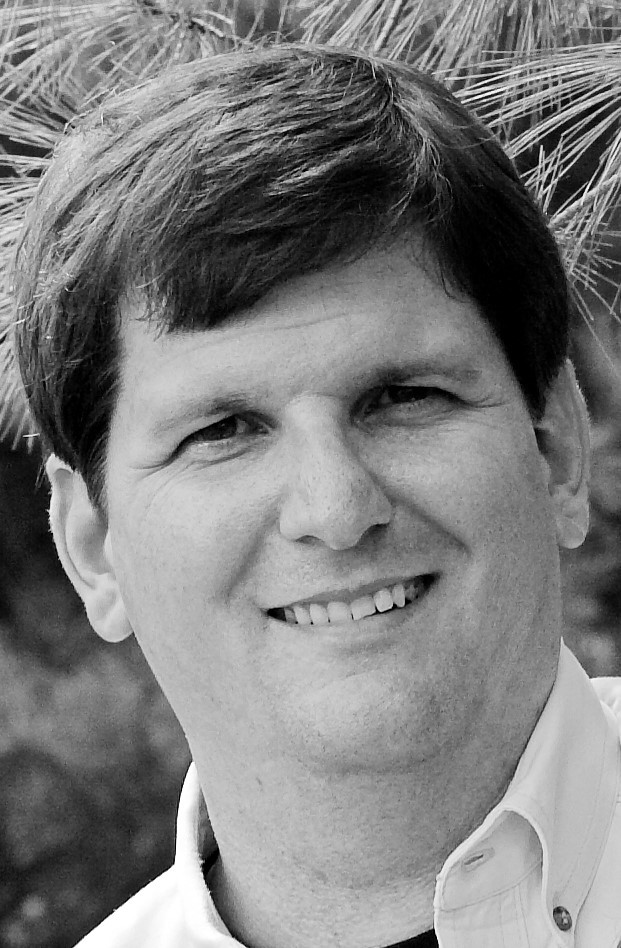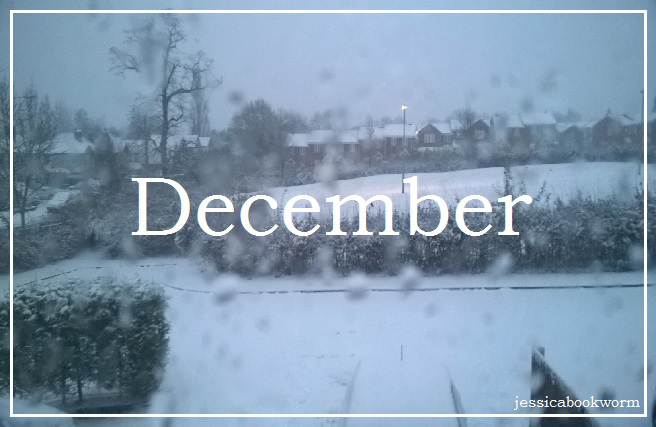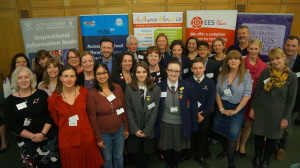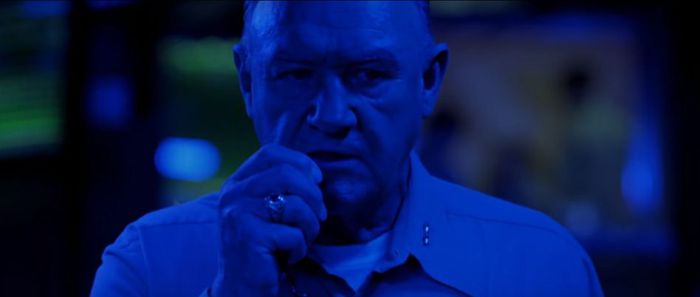
Dayton Ward is a New York Times bestselling author or co-author of more than twenty novels, often working with his best friend, Kevin Dilmore. His short fiction has appeared in more than twenty anthologies, and he’s written for various magazines including Kansas City Voices, Famous Monsters of Filmland, Star Trek and Star Trek Communicator, as well as the websites Tor.com, StarTrek.com, and Syfy.com. Dayton lives with his wife and two daughters in Lee’s Summit. Visit him on the web at http://www.daytonward.com
You have an impressive bibliography, consisting of original novels, short stories and tie-in properties like Star Trek, 24, The 4400, Mars Attacks and Planet of the Apes. You’ve also appeared on the New York Times best seller list. Can you tell us a little about how you got your start?
My first pro story sales were to the first three Star Trek: Strange New Worlds writing contests sponsored by Pocket Books. Once I got to the point where I couldn’t submit to future contests, I was offered a contract to write a Star Trek novel. I’ve been writing for them ever since, along with working for other clients.
The Star Trek universe means many things to many people. The stories told through TV, film and novels encourage exploration, rational thought and a boldness for life. What attracts you to it?
Its optimism. Sure, there are a lot of Star Trek stories that take a dark turn, but in the end Star Trek is about what we can do to better ourselves and the universe we live in and share with others. Within that framework is a lot of room for telling a wide variety of stories, from action-adventure to character studies to political thrillers, but the best takes always find a way to tie back to that basic Star Trek tenet of an optimistic future.
Many of our readers are independent authors who hold down day jobs while writing at night and on weekends. With your similar experience, can you provide some advice on how to balance life and work?
It can definitely be a challenge, trying to balance everything. Some writing advice books or seminars say you have to write so many words per day or so many hours per day, but I’ve never put much stock in such rigid “rules.” The secret to success is to balance your writing in a way that makes sense for you and everything else you have going on. Job or school, kids and their activities, keeping up a house, working out, and so on. Somewhere in all of that, you have to carve a slice of time to write. If it’s thirty minutes in the morning before your kids wake up, or on your lunch break. Maybe it’s every day, or every day your kids have gymnastics after school. Find that window, and stick to it.
Is your writing process different when you create original works than when you work on tie-in properties?
The review and approval process is different, because with tie-ins there’s an extra level you have to navigate, in the form of the property’s licensing representative. Somebody on that end gets to give your outline and your manuscript a thumbs-up or down. As for my end of things, the process tends to largely be similar. For novels, I develop an outline, but it’s a guideline rather than holy writ. My outlines tend to be “high level” instead of dwelling on a lot of details, so that gives me room to maneuver as the manuscript starts to take shape. I almost always stick to the outline’s broad strokes, but if I’m writing and I find that something I proposed in the outline isn’t working, or I just have a better idea about a particular plot point, then I’ll go with that. The trick of succeeding with this approach for tie-ins is not to introduce something that the license owner will find objectionable. For Star Trek, I’ve been doing this long enough and I have a solid working relationship with my editors and the licensing office that I have a good idea of what will and won’t pass muster. I won’t send them something unless I know (or at least I’m pretty confident) that they’ll go for it.
You’ve edited science fiction anthologies. Can you tell us what you look for in a story when considering it for inclusion?
My editing experience is limited, but obviously it starts with stories that fit the anthology’s theme. That said, I also liked it when I was surprised, or had my perceptions about the theme challenged or expanded. Beyond that, I looked for something that grabbed me from the first page and hung on, refusing to let go until I reached the end. The trick with short fiction is that you have to get to the point pretty quickly, or else the editor will start skipping ahead in search of the part where your story gets interesting. More often, they’ll just move on to the next story.
After collaborating with other writers on a number of projects, can you describe the process you use when working with someone else on a book?
The process is never the same from book to book. That’s true if it’s me and my friend and frequent co-writer, Kevin Dilmore, working on something, or collaborating with other writers for different entries in a mini-series or other larger, joint project. Sometimes it’s just communicating to make sure our respective stories stay in sync with each other, or it gets more involved as we help each other develop characters or a plotline. The main constant across all of those experiences is that I really do enjoy the collaborative aspect of such projects. The brainstorming calls we have or the emails we exchange never fail to amp up my enthusiasm for a particular project, and we seem to feed off each other’s energy as we figure out all the twists and turns for a given story.
With your success writing short stories, including one included in a Rush anthology inspired by their music (which is mighty cool!), can you describe what attracts you to the shortened written form?
Short fiction gives you the chance to really run with a single idea, without having to worry about how it folds in with the other plotlines you need to flesh out a complete novel. Indeed, sometimes you get an idea that works much better within this structure, and expanding it to novel length alters or even removes the spark that struck you in the first place.
Like many writers you maintain a blog (at http://www.daytonward.com/). Can you tell us why you like blogging and how it helps you as a writer?
In theory, the blog is the foundation for my “author social media platform,” where readers and fans can come to learn about my writing, find out what I’m working on, catch announcements of new projects, catch the odd piece of fiction, and so on. So there are plenty of posts to address those points, but I also use it to just ramble a bit about something that interests me. It could be books I’m reading or movies I’ve watched, bragging about my kids, or taking a look at issues of the day (though I actually tend not to get too political there, or write about too many hot button topics). It’s a place where a lot of “free writing” happens, as I try to get the juices flowing so that I can get on with the current novel or short story in progress.
Can you tell us about your next project?
My latest publications are a short story in the Titan Books anthology Planet of the Apes: Tales from the Forbidden Zone, and Headlong Flight, a Star Trek: The Next Generation novel from Pocket Books. Projects in various stages of development include a “travel guide” to the Klingon Empire, another ST:TNG novel that’ll be out in May, and another novel that I should probably get started writing here fairly soon. Beyond that, there are always discussions or queries about the next thing. Such is the life of a full-time freelancer.
Where can readers find your work and where can they find you online?
My books are available at your local bookstore, or at the various online merchants. As for where I’m lurking online, it all starts at DaytonWard.com. There, you’ll find my blog, A.K.A. “The Fog of Ward,” along with links to the rest of my “author platform” such as my Facebook page, my Twitter feed, and all that good stuff. Bring your own beer.
Share this:





